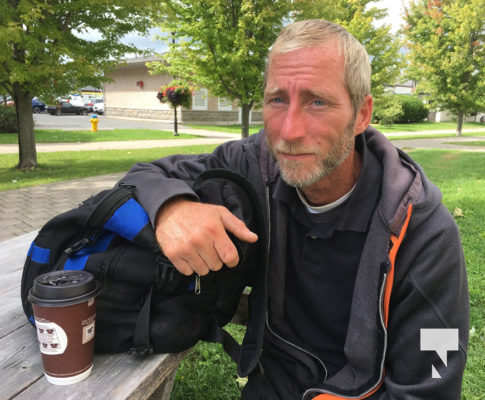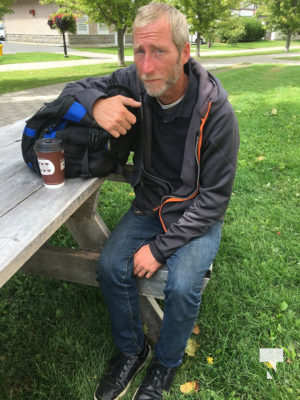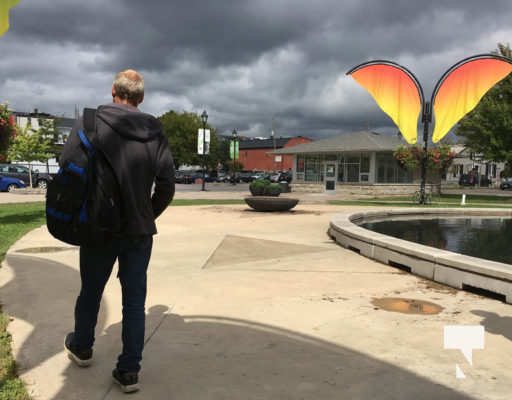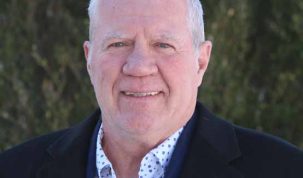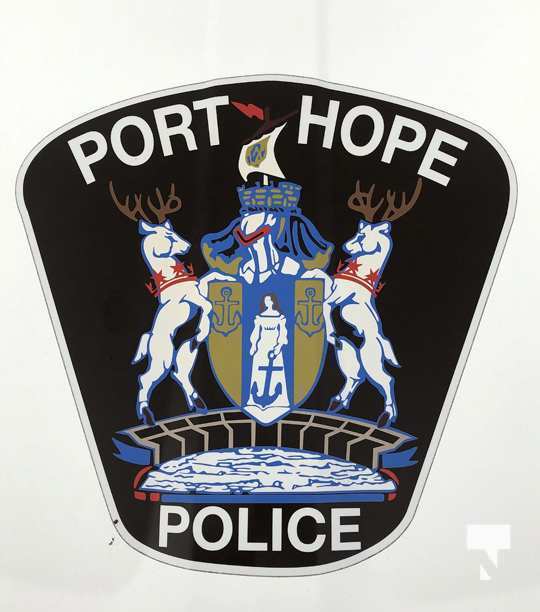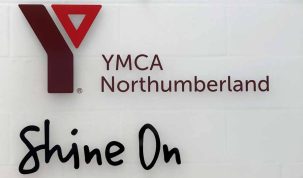Exclusive – Homelessness is more visible on the streets of Cobourg than ever before.
That generates the question of why?
Today’s Northumberland had the chance to sit down and have an open and honest conversation with one man who has been homeless for almost a year.
Mike Cole is 45-years-old and homeless in Cobourg. What that means for him is sleeping rough in makeshift shelters around town. Today’s Northumberland spoke with him at a picnic table at Rotary Waterfront Park. He owns nothing but the clothes he’s wearing, a backpack and a cell phone. Cole represents a growing number of people who are living in poverty and faced with the outrageous costs of having a home. Finding any kind of housing that is affordable has been impossible for him.
Cole was born in Cobourg, married for close to 10-years and has three children ranging in ages from 8 to 15. He’s owned businesses in downtown Cobourg. As his relationship broke down, and having never been a big drinker, he was introduced to drugs by a co-worker.
“They had the drug there – crystal meth. They gave me a few lines of it.”
“It made me feel like I didn’t have to worry about the things I worried about. It just made me feel better about where I was in life. From there I went full throttle.”
“I was somewhere in my life where I wasn’t having fun and I needed something. It spiraled because I had a relapse and I was on a path of self-destruction,” said Cole.
“It just went downhill.”
Since then, he’s been arrested more than once and has had his share of run-ins with the local police. Before being homeless, he tried living with friends, but he had psychosis and people turned their back on him and he ended up back on the street.
Sleeping on picnic tables, abandoned buildings, tents, and the night before meeting with Today’s Northumberland Cole slept in an abandoned bus.
“It can be dangerous. I’ve never had issues, but I’ve heard of other people having issues. Your stuff gets stolen easily.”
If he had his way, Cole would be off the streets. “I’m trying to quit the drugs and I’m looking to get into rehab.”
But getting into a residential treatment program is something society needs to understand isn’t easy. When he first got together with a counsellor, it was looking like it was going to be a two to three week wait, now it’s looking more like a four to five month wait or longer.
“I want to stay focused, but I could easily fall off track.”
“It’s not hard to get and it’s easy to get caught up in the drugs.”
And when he does, the psychosis comes back.
“I have to quit,” he keeps repeating to himself.
But Cole said there is lots of drugs in Cobourg and he only see’s the problem getting worse – much worse.
“I think it’s becoming an epidemic just in the fact that we all rely on ourselves. We help each other get drugs and it gets worse and worse.”
“It’s not hard to get and it’s easy to get caught up in the drug.”
Cole admits he’s used needles before, but he mostly smokes the drug.
Most users are safety conscious with the needles, “but there are a select few who aren’t.”
“Safety means they rarely share them. But there is always that one person who will.”
When the drug users are done with the needle they break the end off, put the cap back on and toss it.
Cole describes a typical pattern that emerges for people struggling with addiction and homelessness, “I get a job, get a place to live, I get into drugs, I lose my place to live, get a job, get a place to live, I get into drugs, I lose my place to live.”
Wanting the public to know Cole said every person has their own, complex story.
“People can help by understanding and not judging. I don’t judge people. Just treat someone like a human being.”
Before living on the streets, Cole never realized how many people are suffering with homelessness. “I know the ones I’ve spoken to want help. But a lot of them don’t know how to ask for help.”
Cole knows other people struggling with addictions on the street who, like him, are waiting for treatment programs. With the quantity of hard drugs on the streets of Cobourg, Cole says he can only see it getting worse.
While waiting for a treatment program and affordable housing, Cole’s life consists of finding a place to sleep and just trying to stay safe.
“There are all these abandoned buildings downtown, all these places where people could go and sleep. We got into an abandoned building a few months ago. It was dirty, but we slept in it and they boarded it up. We just want somewhere to go.”
Emergency shelters and comfort centers or warming rooms are not a fit for everyone. Although for the past 10 months there has been no emergency shelter in Northumberland County, and the Comfort Centre at the Police Station was open during that time, these services do not meet the needs for everyone experiencing housing crisis or homelessness.
“The police station doesn’t cut it because they (some) treat us like criminals when we go in there.” As well, Cole continues, “If you walk into the police station you’re already considered ratting somebody out. But I was sleeping there because it was dry and warm and they had a shower.”
After writing his name on a locker one night at the comfort centre in the police station he was told to leave. Cole said he didn’t have a padlock to put on the locker for safety, and it wasn’t a permanent marker. In fact, he rubbed off his name with his fingers.
“I went back in the next day to have a shower and they charged me with trespassing. I’ve basically been on the street since then.”
Mike Cole wants a better life for himself.
His end goal is to go back to school and reconnect with his family.
For now, Cole wants to complete a treatment program and finding stable affordable housing – the problem is, many barriers must be knocked down first.
The reality is as more people spill out onto the streets, the realization the system as it stands now is inadequate.


